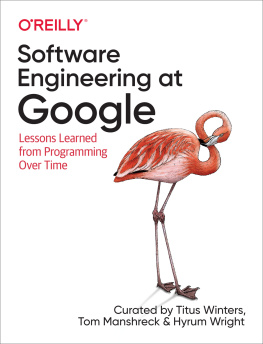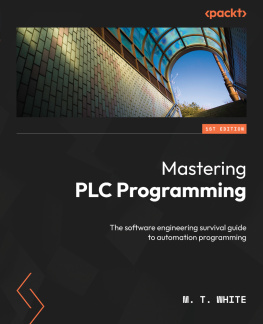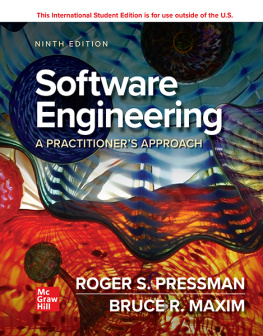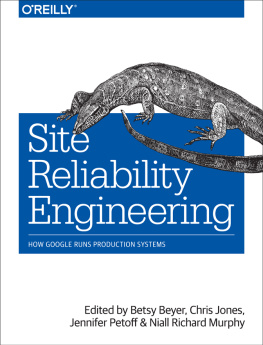Software Engineering at Google
by Titus Winters , Tom Manshreck , and Hyrum Wright
Copyright 2020 Google, LLC. All rights reserved.
Printed in the United States of America.
Published by OReilly Media, Inc. , 1005 Gravenstein Highway North, Sebastopol, CA 95472.
OReilly books may be purchased for educational, business, or sales promotional use. Online editions are also available for most titles (http://oreilly.com). For more information, contact our corporate/institutional sales department: 800-998-9938 or corporate@oreilly.com .
- Acquisitions Editor: Ryan Shaw
- Development Editors: Alicia Young
- Production Editor: Christopher Faucher
- Copyeditor: Octal Publishing, LLC
- Proofreader: Holly Bauer Forsyth
- Indexer: Ellen Troutman-Zaig
- Interior Designer: David Futato
- Cover Designer: Karen Montgomery
- Illustrator: Rebecca Demarest
- March 2020: First Edition
Revision History for the First Edition
- 2020-02-28: First Release
See http://oreilly.com/catalog/errata.csp?isbn=9781492082798 for release details.
The OReilly logo is a registered trademark of OReilly Media, Inc. Software Engineering at Google, the cover image, and related trade dress are trademarks of OReilly Media, Inc.
The views expressed in this work are those of the authors, and do not represent the publishers views. While the publisher and the authors have used good faith efforts to ensure that the information and instructions contained in this work are accurate, the publisher and the authors disclaim all responsibility for errors or omissions, including without limitation responsibility for damages resulting from the use of or reliance on this work. Use of the information and instructions contained in this work is at your own risk. If any code samples or other technology this work contains or describes is subject to open source licenses or the intellectual property rights of others, it is your responsibility to ensure that your use thereof complies with such licenses and/or rights.
978-1-492-08279-8
[LSI]
Foreword
I have always been endlessly fascinated with the details of how Google does things. I have grilled my Googler friends for information about the way things really work inside of the company. How do they manage such a massive, monolithic code repository without falling over? How do tens of thousands of engineers successfully collaborate on thousands of projects? How do they maintain the quality of their systems?
Working with former Googlers has only increased my curiosity. If youve ever worked with a former Google engineer (or Xoogler, as theyre sometimes called), youve no doubt heard the phrase at Google we Coming out of Google into other companies seems to be a shocking experience, at least from the engineering side of things. As far as this outsider can tell, the systems and processes for writing code at Google must be among the best in the world, given both the scale of the company and how often people sing their praises.
In Software Engineering at Google, a set of Googlers (and some Xooglers) gives us a lengthy blueprint for many of the practices, tools, and even cultural elements that underlie software engineering at Google. Its easy to overfocus on the amazing tools that Google has built to support writing code, and this book provides a lot of details about those tools. But it also goes beyond simply describing the tooling to give us the philosophy and processes that the teams at Google follow. These can be adapted to fit a variety of circumstances, whether or not you have the scale and tooling. To my delight, there are several chapters that go deep on various aspects of automated testing, a topic that continues to meet with too much resistance in our industry.
The great thing about tech is that there is never only one way to do something. Instead, there is a series of trade-offs we all must make depending on the circumstances of our team and situation. What can we cheaply take from open source? What can our team build? What makes sense to support for our scale? When I was grilling my Googler friends, I wanted to hear about the world at the extreme end of scale: resource rich, in both talent and money, with high demands on the software being built. This anecdotal information gave me ideas on some options that I might not otherwise have considered.
With this book, weve written down those options for everyone to read. Of course, Google is a unique company, and it would be foolish to assume that the right way to run your software engineering organization is to precisely copy their formula. Applied practically, this book will give you ideas on how things could be done, and a lot of information that you can use to bolster your arguments for adopting best practices like testing, knowledge sharing, and building collaborative teams.
You may never need to build Google yourself, and you may not even want to reach for the same techniques they apply in your organization. But if you arent familiar with the practices Google has developed, youre missing a perspective on software engineering that comes from tens of thousands of engineers working collaboratively on software over the course of more than two decades. That knowledge is far too valuable to ignore.
Camille Fournier
Author, The Managers Path
Preface
This book is titled Software Engineering at Google. What precisely do we mean by software engineering? What distinguishes software engineering from programming or computer science? And why would Google have a unique perspective to add to the corpus of previous software engineering literature written over the past 50 years?
The terms programming and software engineering have been used interchangeably for quite some time in our industry, although each term has a different emphasis and different implications. University students tend to study computer science and get jobs writing code as programmers.
Software engineering, however, sounds more serious, as if it implies the application of some theoretical knowledge to build something real and precise. Mechanical engineers, civil engineers, aeronautical engineers, and those in other engineering disciplines all practice engineering. They all work in the real world and use the application of their theoretical knowledge to create something real. Software engineers also create something real, though it is less tangible than the things other engineers create.
Unlike those more established engineering professions, current software engineering theory or practice is not nearly as rigorous. Aeronautical engineers must follow rigid guidelines and practices, because errors in their calculations can cause real damage; programming, on the whole, has traditionally not followed such rigorous practices. But, as software becomes more integrated into our lives, we must adopt and rely on more rigorous engineering methods. We hope this book helps others see a path toward more reliable software practices.
Programming Over Time
We propose that software engineering encompasses not just the act of writing code, but all of the tools and processes an organization uses to build and maintain that code over time. What practices can a software organization introduce that will best keep its code valuable over the long term? How can engineers make a codebase more sustainable and the software engineering discipline itself more rigorous? We dont have fundamental answers to these questions, but we hope that Googles collective experiences over the past two decades illuminates possible paths toward finding those answers.
One key insight we share in this book is that software engineering can be thought of as programming integrated over time. What practices can we introduce to our code to make it










